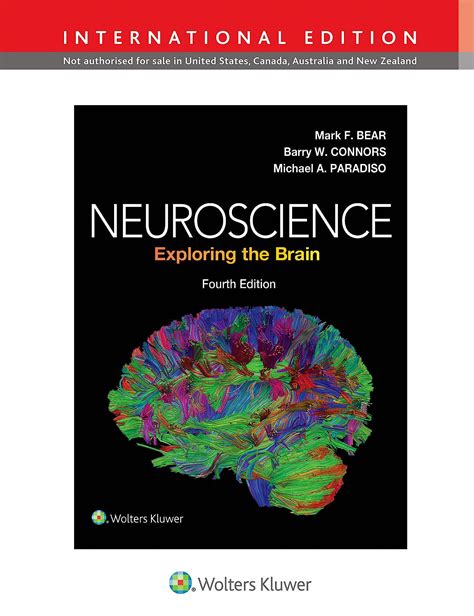The study of the human mind has long been a fascination for scientists, scholars, and philosophers alike. Cognitive neuroscience is a field that seeks to unravel the complexities of the mind by understanding the biological processes that underpin our cognitive abilities and behaviors. In this blog post, we will dive into the world of cognitive neuroscience, exploring its history, the structure and function of the brain, the relationship between mind and brain, and the methods and technologies used in this field. We will also delve into the role of neurotransmitters in cognitive processes, cognitive development across the lifespan, the neurobiology of memory and learning, as well as the neural basis of emotions. Finally, we will examine the implications of cognitive neuroscience for mental health. Join us as we embark on a journey to uncover the mysteries of the human mind through the fascinating lens of cognitive neuroscience.
Table of Contents
What is Cognitive Neuroscience?
Cognitive neuroscience is a branch of both neuroscience and psychology that focuses on the scientific study of biological processes that underlie human cognition. This field is centered around understanding how the brain enables the mind and behavior, and it involves the study of various aspects of cognition such as perception, attention, memory, language, and problem-solving.
One of the main goals of cognitive neuroscience is to uncover the neural mechanisms that give rise to these cognitive processes, as well as to investigate how these processes manifest in the human brain. This interdisciplinary field integrates knowledge and methodologies from biology, psychology, and neuroscience to provide a comprehensive understanding of the relationship between the brain and cognitive functions.
In addition to using advanced imaging techniques such as fMRI and EEG to study brain activity, cognitive neuroscientists also draw on computational modeling and behavioral experiments to gain insights into how the brain processes information and produces complex behaviors. This multidisciplinary approach allows researchers to examine how cognitive functions are implemented in the brain and how they can be affected by neurological disorders, injuries, or pharmacological manipulations.
Overall, cognitive neuroscience plays a crucial role in advancing our understanding of the human mind and brain, and its insights have broad implications for fields such as medicine, education, and technology.
The History and Evolution of Cognitive Neuroscience
In the history of cognitive neuroscience, there have been significant milestones that have shaped our understanding of the relationship between the brain and mind. From its early roots in philosophy and psychology to the development of advanced neuroimaging techniques, the field has made remarkable progress over the years.
The evolution of cognitive neuroscience can be traced back to the ancient Greeks and their philosophical inquiries into the nature of perception and thought. However, it wasn’t until the 19th century that the study of the brain began to take shape with the groundbreaking work of researchers such as Broca and Wernicke who identified specific areas of the brain associated with language processing.
As technology advanced, so did the field of cognitive neuroscience. The development of neuroimaging tools such as fMRI and EEG allowed researchers to explore the brain in unprecedented detail, leading to major discoveries about the neural basis of cognition and behavior.
Today, cognitive neuroscience continues to evolve, integrating findings from genetics, neurobiology, and computational modeling to provide a more comprehensive understanding of the brain-mind connection. The field’s history and evolution serve as a testament to the ongoing quest to unravel the mysteries of the human brain.
Understanding the Structure and Function of the Brain
The brain is an incredibly complex and fascinating organ that plays a vital role in all of our daily activities, thoughts, and emotions. It is responsible for controlling our bodily functions, processing sensory information, and governing our behavior. Understanding the structure and function of the brain is crucial in unlocking the mysteries of human cognition and behavior.
At its most basic level, the brain can be divided into three main parts: the cerebrum, the cerebellum, and the brainstem. Each of these areas is responsible for different functions within the body, such as motor control, sensory perception, and higher cognitive processes.
Furthermore, the brain is made up of billions of specialized cells called neurons, which communicate with each other through electrical and chemical signals. These neurons form complex networks that allow for the transmission of information throughout the brain and body. This intricate web of connections is essential for the brain to carry out its many functions.
In addition to its structural complexity, the brain also has a number of specialized regions that are dedicated to specific tasks. For example, the frontal lobe is involved in decision-making and problem-solving, while the occipital lobe is responsible for processing visual information. Understanding the roles of these different areas is essential in gaining insight into how the brain functions and how it influences behavior and cognition.
Investigating the Relationship between Mind and Brain
Cognitive neuroscience is a field of study that seeks to understand the relationship between the mind and the brain. It is an interdisciplinary area of research that combines the concepts and methods from psychology, neuroscience, and other related fields to explore how the brain gives rise to the mind and behavior.
One of the main goals of cognitive neuroscience is to uncover the neural mechanisms that underlie our cognitive processes, such as perception, attention, memory, language, and decision-making. By investigating these mechanisms, researchers hope to gain a better understanding of how the brain enables us to think, feel, and act the way we do.
Through the use of advanced imaging techniques, such as fMRI, EEG, and PET scans, cognitive neuroscientists are able to observe the structure and function of the brain in real-time as individuals engage in various cognitive tasks. These technologies allow researchers to map out the neural networks involved in specific mental processes, providing valuable insights into the relationship between the mind and the brain.
Ultimately, the findings from cognitive neuroscience research have the potential to not only enhance our understanding of the human brain but also to inform the development of treatments for neurological and psychiatric disorders. By uncovering the intricacies of the mind-brain relationship, cognitive neuroscience has the power to revolutionize our approach to mental health and well-being.
Methods and Technologies Used in Cognitive Neuroscience
Cognitive neuroscience is a multidisciplinary field that combines elements of psychology, neuroscience, and biology to study the relationship between the brain and cognitive processes.
One of the key aspects of cognitive neuroscience is the use of various methods and technologies to investigate the inner workings of the brain and understand how it gives rise to cognitive functions.
One of the most commonly used techniques in cognitive neuroscience is functional magnetic resonance imaging (fMRI), which allows researchers to observe changes in blood flow in the brain as participants engage in different cognitive tasks.
Another important technology is electroencephalography (EEG), which measures electrical activity in the brain and is particularly useful for studying the timing of cognitive processes.
The Role of Neurotransmitters in Cognitive Processes
Neurotransmitters play a crucial role in cognitive processes, serving as chemical messengers that transmit signals from one neuron to another in the brain. These neurotransmitters are involved in various cognitive functions such as attention, memory, learning, and emotions. They are essential for the communication between neurons, allowing the brain to process and interpret information from the environment.
The levels of neurotransmitters in the brain can affect cognitive processes, and imbalances in these brain chemicals can lead to cognitive impairments or mental health disorders. For example, low levels of serotonin have been linked to depression, while an overabundance of dopamine is associated with schizophrenia.
Furthermore, neurotransmitters can be modulated by certain medications, such as antidepressants and antipsychotics, to improve cognitive functioning and alleviate symptoms of mental health conditions. This demonstrates the significant impact that neurotransmitters have on cognitive processes and mental well-being.
Understanding the role of neurotransmitters in cognitive processes is crucial for advancing our knowledge of the brain and developing effective treatments for cognitive and mental health disorders. Researchers continue to explore the complex interactions between neurotransmitters and cognitive function, opening up new possibilities for improving brain health and well-being.
Examining Cognitive Development across the Lifespan
Cognitive development is the process by which an individual’s perception, understanding, and thought processes evolve over time. This development begins from the moment of birth and continues throughout the entire lifespan, encompassing childhood, adolescence, adulthood, and old age. It is a fascinating area of study that explores how the brain’s cognitive abilities change and grow as a person ages, and how these changes impact behavior, learning, and decision-making.
One of the key aspects of examining cognitive development across the lifespan is understanding the various stages that individuals go through as they grow and mature. From infancy to old age, cognitive abilities such as attention, memory, problem-solving, and decision-making undergo significant changes. These changes are influenced by a wide range of factors including genetics, environment, education, and social interactions.
Researchers in the field of cognitive neuroscience use various methods and technologies to study cognitive development. These may include neuroimaging techniques such as functional magnetic resonance imaging (fMRI) and electroencephalography (EEG), as well as behavioral experiments and longitudinal studies that track individuals over time.
Understanding cognitive development across the lifespan has important implications for education, healthcare, and the broader society. By gaining insights into how cognitive abilities change with age, researchers can develop more effective teaching methods, identify early signs of cognitive decline, and design interventions to support healthy cognitive aging.
The Neurobiology of Memory and Learning
Memory and learning are complex cognitive processes that are vital for human functioning. The neurobiology behind these processes involves a network of brain regions and neurotransmitters working together to encode, store, and retrieve information.
The hippocampus plays a crucial role in the formation of new memories and spatial navigation. It is also involved in the consolidation of long-term memories, as well as the retrieval of information from different contexts.
Furthermore, neurotransmitters such as dopamine, serotonin, and acetylcholine play key roles in modulating memory and learning processes. For example, dopamine is known to be involved in reward-based learning, while acetylcholine is crucial for attention and memory formation.
Understanding the intricate neurobiological mechanisms of memory and learning can provide valuable insights into how these processes work, as well as potential targets for enhancing cognitive functioning and treating memory-related disorders.
Exploring Emotions and their Neural Basis
Understanding the complex ways in which emotions are processed in the brain has been a central focus of cognitive neuroscience. Emotions play a crucial role in shaping our thoughts, behaviors, and interactions with the world around us, making it essential to delve into the neural basis of these phenomena.
One of the key areas of exploration within cognitive neuroscience is the study of brain regions and neural circuits that are involved in the generation and regulation of emotions. Researchers have used advanced imaging techniques such as fMRI and PET scans to identify specific brain areas, such as the amygdala and prefrontal cortex, that are associated with different emotional processes.
Furthermore, investigating the role of neurotransmitters in modulating emotional experiences has been an important avenue of research. Neurotransmitters like serotonin and dopamine have been found to play a critical role in regulating mood and emotional responses, shedding light on the biological underpinnings of emotional disorders such as depression and anxiety.
This exploration of emotions and their neural basis not only enhances our understanding of human cognition and behavior but also holds great potential for the development of novel treatments for emotional disorders and mental health conditions.
The Implications of Cognitive Neuroscience for Mental Health
The field of cognitive neuroscience has significant implications for mental health, as it focuses on understanding the biological processes that underlie human cognition, behavior, and emotion. By studying the relationship between the brain and mental processes, cognitive neuroscience provides valuable insight into the mechanisms of various mental health conditions and disorders.
One important implication of cognitive neuroscience for mental health is the potential for the development of more effective treatments for disorders such as depression, anxiety, and post-traumatic stress disorder (PTSD). By gaining a better understanding of the neurobiological mechanisms underlying these conditions, researchers and clinicians can work towards developing targeted interventions that address the root causes of these disorders.
Furthermore, cognitive neuroscience research can also contribute to the prevention of mental health disorders. By identifying risk factors and early biomarkers associated with various conditions, such as schizophrenia or Alzheimer’s disease





